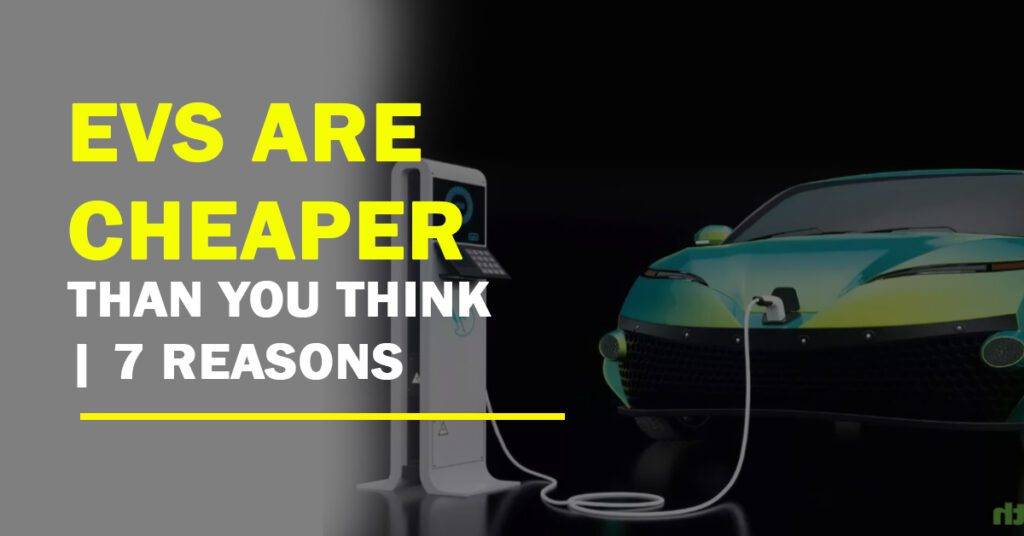
Table of Contents
ToggleIntroduction

Picture yourself driving down a road with the windows down, feeling the wind rush through your hair. But as you continue driving, you notice the unpleasant smell of gasoline fumes, and you begin to feel guilty about contributing to air pollution. Fortunately, there is a solution to this problem, and it comes in the form of electric vehicles (EVs).
In recent years, there has been an increasing awareness of the negative impact that gasoline-powered cars have on the environment. The emissions produced by these vehicles are a significant contributor to air pollution, which can lead to health problems such as asthma and lung cancer. In addition, the burning of fossil fuels also contributes to climate change, which can have disastrous consequences for our planet.
This is where electric vehicles come in. EVs are powered by electricity, which is a cleaner source of energy than gasoline. They produce zero emissions, meaning that they don’t contribute to air pollution or climate change. Not only that, but the production of EVs also creates less pollution than the production of traditional cars.
In this blog, we will explore the ways in which electric vehicles are better for the environment, and how they can help us to reduce our carbon footprint. From reducing greenhouse gas emissions to promoting sustainable energy practices, we will look at the many benefits of switching to an electric vehicle. So, if you’re curious about how you can make a positive impact on the environment, read on to learn more about the benefits of electric vehicles.
What Are EVs and How Do They Work?

Electric vehicles (EVs) are a type of vehicle that uses electricity to power its motor instead of gasoline or diesel fuel. These vehicles are becoming more popular due to their many benefits, including their lower environmental impact and cheaper long-term operating costs.
An EV works by using a large battery to store electricity, which is used to power an electric motor. When the driver presses the accelerator pedal, the motor receives electricity from the battery, which spins the wheels and propels the vehicle forward. This process is much quieter and smoother than in a traditional gasoline-powered car, as there is no internal combustion engine involved.
To charge an EV, the owner must plug it into an electric outlet or charging station. There are several types of charging, including Level 1, which uses a standard household outlet and is the slowest, and Level 3, which is the fastest but requires a special charging station. The charging time varies depending on the type of charging used and the size of the battery.
There are two main types of electric vehicles: all-electric vehicles (AEVs) and plug-in hybrid electric vehicles (PHEVs). AEVs are powered solely by electricity and require a charging station to recharge. PHEVs, on the other hand, have both an electric motor and a gasoline-powered engine, and can switch between the two depending on driving conditions.
7 Reasons Why EVs Are Cheaper
Lower Operating Costs

One of the biggest reasons why EVs are cheaper than you might think is due to their lower operating costs. Compared to traditional gas-powered cars, EVs cost less to run on a day-to-day basis. Charging an EV at home is much cheaper than filling up at a gas station, and EVs also require less maintenance due to their fewer moving parts. With lower maintenance costs, fewer trips to the mechanic, and no need for oil changes, the savings can really add up over time. Plus, with incentives like tax credits and lower insurance premiums, switching to an EV can help you save money in the long run.
Government Incentives

Government incentives play a significant role in making electric vehicles (EVs) a more affordable option for consumers. Many governments around the world offer tax credits, rebates, and other financial incentives to encourage the adoption of EVs. For example, in the United States, EV buyers can receive a federal tax credit of up to $7,500, depending on the vehicle’s battery size. Some states also offer additional incentives, such as rebates or exemptions from sales tax. These incentives help offset the higher upfront cost of EVs and make them a more attractive option for consumers looking to save money on transportation costs.
Energy Efficiency
Another reason why EVs are cheaper than you think is their energy efficiency. EVs convert more of their energy into actual movement than traditional gas-powered cars, which means they can travel further on less energy. This makes EVs an excellent option for anyone looking to save money on fuel costs. Plus, with more charging stations popping up all the time, it’s becoming easier than ever to charge your EV on the go. So not only are EVs cheaper to run, but they’re also more convenient than ever before. With all these benefits, it’s no wonder more and more people are making the switch to electric vehicles! Longevity: EVs typically last longer than traditional gasoline-powered vehicles. This means that you can save money by not having to replace your vehicle as often.
Resale Value
One factor that many people overlook when considering the cost of an Electric Vehicle is their resale value. It turns out that Electric Vehicles tend to hold their value quite well, making them a smart investment in the long run. This is largely due to the fact that Electric Vehicle technology is improving rapidly, so newer models are always hitting the market with better features and longer ranges. As a result, older Electric Vehicles often hold their value better than older gas-powered cars. So not only will you save money on fuel costs and maintenance over the life of your Electric Vehicle, but you’ll also be able to recoup a significant portion of your initial investment when it’s time to sell.
Reduced Depreciation
Another way that Electric Vehicles can be cheaper than you might think is through reduced depreciation. Electric Vehicles tend to hold their value better than gas-powered cars, meaning that they lose less value over time. This is partly due to the fact that Electric Vehicle technology is still relatively new, and demand for used Electric Vehicles is increasing as more people become interested in owning them. Additionally, Electric Vehicles tend to have fewer mechanical parts and require less maintenance, which can make them more appealing to buyers. So, if you decide to sell your Electric Vehicle down the line, you can expect to get a higher resale value than you would with a gas-powered car.
Reduced Insurance Costs
Another benefit of owning an Electric Vehicle is the reduced insurance costs. Insurance providers often view Electric Vehicles as less risky than gas-powered cars, since they tend to have fewer accidents and are less likely to be stolen. This means that you could save money on your insurance premiums by switching to an Electric Vehicle. Plus, some insurance providers offer special discounts or incentives for Electric Vehicle owners. So not only will you save money on fuel and maintenance, but you’ll also enjoy lower insurance costs. It’s just one more way that owning an Electric Vehicle can be a smart financial choice!
Environmental Benefits
In addition to being cheaper to own and operate, Electric Vehicles also offer significant environmental benefits. By driving an Electric Vehicle, you’ll be helping to reduce air pollution, greenhouse gas emissions, and noise pollution. Electric Vehicles emit zero tailpipe emissions, meaning they don’t release harmful pollutants into the air like gas-powered cars do. Plus, Electric Vehicles are often powered by renewable energy sources like solar or wind, which means they have an even smaller carbon footprint. By choosing an Electric Vehicles , you’ll be doing your part to help protect the planet, while also saving money on fuel and maintenance costs. It’s a win-win situation!
Conclusion
In conclusion, it is clear that electric vehicles (Electric Vehicles) are becoming a cheaper alternative to traditional gas-powered vehicles. The decreasing cost of Electric Vehicle batteries, along with government incentives and policies, have made Electric Vehicles more affordable and accessible for consumers. Additionally, the maintenance and fuel costs of Electric Vehicles are significantly lower compared to gas-powered vehicles. As technology continues to improve and more manufacturers introduce Electric Vehicle models, we can expect to see the cost of Electric Vehicles continue to decline. Investing in an Electric Vehicles can not only save you money in the long run, but also contribute to a more sustainable future for our planet.
To Know More About EVs, CLICK HERE
Reference : World Economic Forum















Leave a Reply